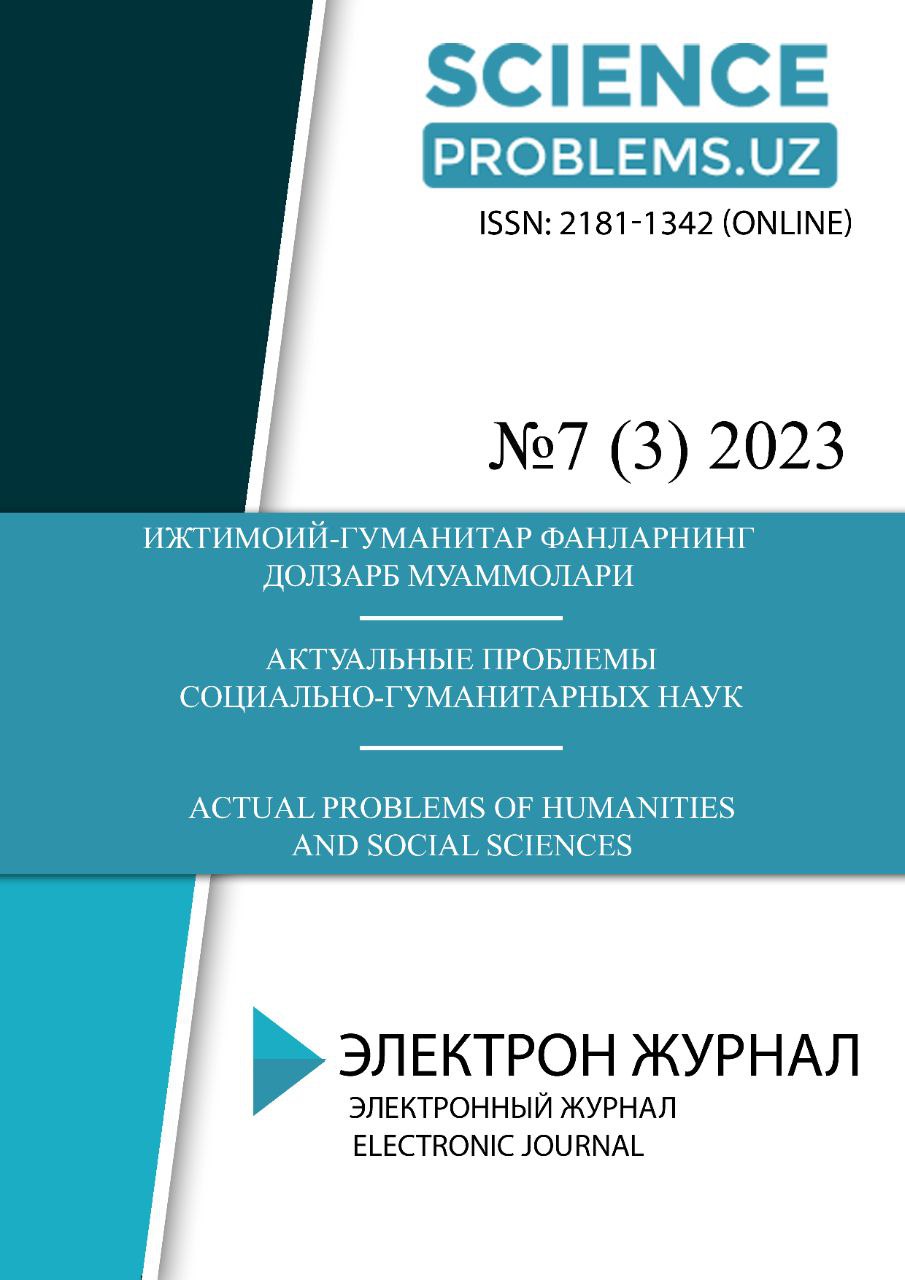ОЦЕНКА РЕГУЛИРУЮЩЕГО ВОЗДЕЙСТВИЯ ПРОЕКТОВ НОРМАТИВНО-ПРАВОВЫХ АКТОВ ПО ИСПОЛЬЗОВАНИЮ ТЕХНОЛОГИЙ БЛОКЧЕЙН. СРАВНИТЕЛЬНЫЙ АНАЛИЗ
Kalit so'zlar
https://doi.org/10.47390/SCP1342V3I7Y2023N30Kalit so'zlar
оценка регулирующего воздействия, криптовалюта, технологии блокчейн, киберпреступления, криптовалютное мошенничество, криптотехнологииAnnotasiya
Блокчейн был впервые представлен в 2008 году как распределенный реестр транзакций биткоинов. Правительства, предприятия и другие организации исследуют и внедряют технологию блокчейн для удовлетворения различных потребностей, большинство из которых не имеют ничего общего с цифровой валютой. В этой связь весьма актуальной становится вопросы изучения проектов нормативно правовых актов по использованию технологий блокчейн.
Manbalar
Fedotov, Y. Remarks at the Twenty-First session of the Commission on Crime Prevention and Criminal Justice. https://www.unodc.org/unodc/en/speeches/2018/remarks-at-21stccpcj.html
Felin, T.; and Lakhani, K. What problems will you solve with blockchain? MIT Sloan Management Review, 60, 1 (2018), 32–38.
Garcia-Murillo, M. Does a government web presence reduce perceptions of corruption? Information Technology for Development, 19, 2 (2013), 151–175.
Garud, R.; Hardy, C.; and Maguire, S. Institutional entrepreneurship as embedded agency: An introduction to the special issue. Organzation Studies, 28, 7 (2007), 957–969.
Hastig, G.; and Sodhi, M.S. Blockchain for supply chaintraceability: Business requirements and critical success factors. Production and Operations Management, 29, 4 (2020), 935–954.
Haveman, H.A.; and Rao, H. Structuring a theory of moral sentiments: Institutional and organizational coevolution in the early thrift industry. American Journal of Sociology, 102, 6 (1997), 1606-1651
Hileman, G.; and Rauchs, M. Global cryptocurrency benchmarking study. Cambridge Centre for Alternative Finance, 33 (2017).
Алимов Г.А., Исроилов Б.И. Теневая экономика, коррупция, взяточничество: уголовно-правовая оценка: Монография. – Т.: ЦПКЮ, 2020. – с. 54
Бердиев Б.Ж. Правовое регулирование криптовалют // Ж. «Правосудие». – 2020. – № 5. – с. 38
Хужаев Ш. Тенденции цифровой трансформации юридического образования и науки //Современные тенденции развития цифровизации в сфере юстиции. – 2022. – Т. 1. – №. 1. – С. 56-60.








